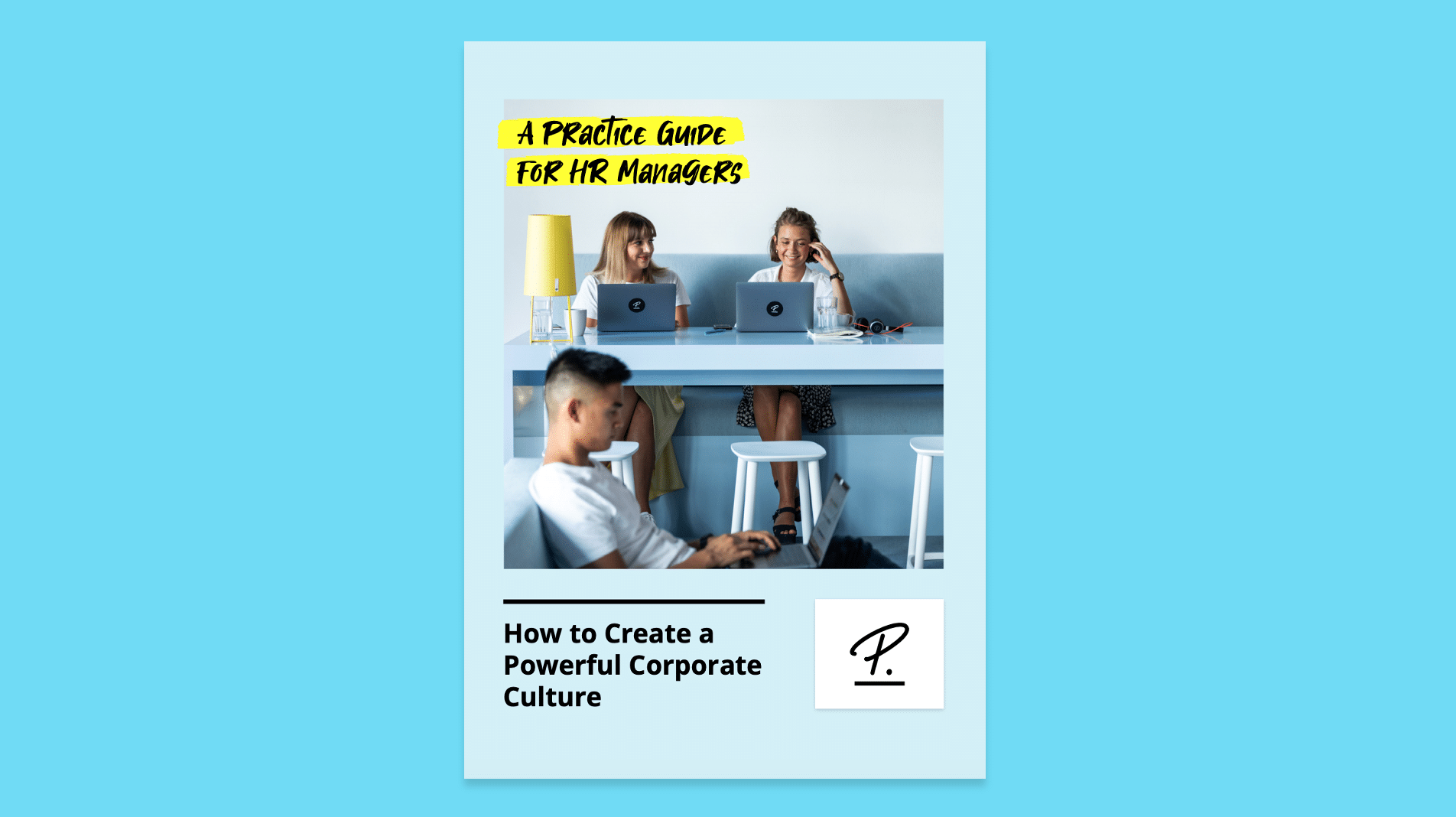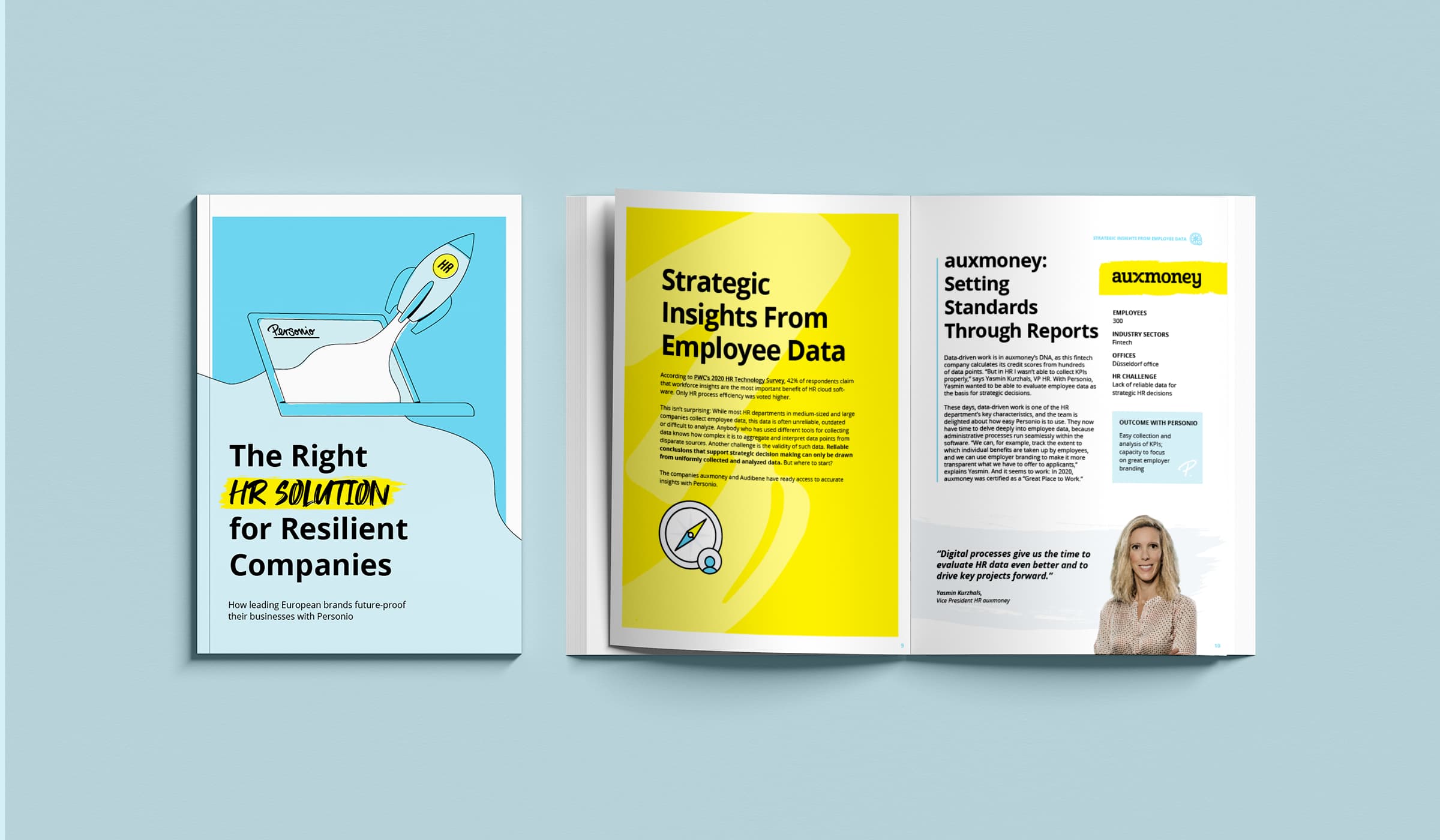10. November 2021
4 Key Strategies to Build Resilience in Your Organisation

More than ever, business resilience is an essential component of any successful organisation.
The Covid-19 pandemic has revealed the necessity of resilience, but it didn't necessarily introduce it. If companies are unprepared or structurally unable to bounce back from tough times, the result is often lost revenue (and lost talent).
To prevent this from happening, organisations need to be resilient. In short, it helps to strengthen them, makes them more agile, and allows them to bounce back after difficult times.
In this equation, HR is key. That’s why we want to share four strategies with you, to help build more resilience in your company moving forward…
Want to take this information with you? Download our latest whitepaper, ‘The Right HR Solution for Resilient Companies’, today.What Is Business Resilience?
Business resilience is the ways companies are designed to react to crises of various kinds (whether internal or external). Business resilience is a form of constant adaptation, building agile teams, and processes, that not only respond to difficult situations but become stronger, as a result.
In these terms, resilience is almost like a business’ sixth sense. It allows organisations to stay ahead of a situation, and to recognise, analyse, and respond in the best way possible. Ultimately, companies who are built to be resilient are often less affected by nasty surprises.
Why Does Business Resilience Matter?
In uncertain times (or even in times of relative stability), business resilience is a competitive advantage. It keeps companies thinking, keeps them sharp, and builds a business designed to respond to challenges.
According to a study entitled "Organisational Resilience: Building An Enduring Enterprise" by the BSI Group, two-thirds of managing directors surveyed felt the exact same way. For them, resilience serves as a decisive competitive advantage.
Resilient companies approach situations not as challenges, but as opportunities. Opportunities for optimisation, growth, and success.
This includes challenges such as:
Political changes
Economic changes
Technological changes
Not only that, but resilient companies strike a much different tone when it comes to these challenges. They not only handle them but in a way that inspires continued confidence from people both inside and outside of the organisation.
The result is a future-proofed business, even in an unprecedented crisis.
Build Resilience Into Your Business Today

It all starts with HR! If you want a business designed to manage crises and come out stronger, we can help. Make time for strategic HR thanks to seamless core processes. Learn about Personio today.
Book A Demo TodayHow Do Companies Currently Handle Resilience?
In the same study by the BSI Group, entrepreneurial resilience can lead to long-term financial success. Almost 9 out of 10 CEOs stated that resilience is a top priority for their companies.
In fact, 8 out of 10 said that it was essential for lasting growth. Even though many CEOs may agree that it’s important, not enough companies actually implement resilience-based organisational structures.
Implementation in this space is moving slowly. Only 3 out of 10 CEOs trust that their company has fully-integrated resiliency practices. Unfortunately, only one fifth (19%) were able to successfully establish resilient processes.
All that could be due to one simple fact: their HR allowed them to become resilient.
Business Resilience Starts In HR
Your ability to become a resilient organisation is in-part dependent on talent. After all, your employees can play an essential role in helping your business adapt (this is especially true in an increasingly digital and agile future).
HR plays its own important role by:
Helping to develop their skills
Training managers to lead
Keep in mind: Business resilience is both a people issue and a change project.
HR managers become important drivers in resilience because they ensure that their company is built to adapt from the ground up.
Four Strategies That Underpin Business Resilience
Strategic HR can help underpin the success of just about any business or organisation. That’s because it builds a solid foundation for resilience.
The following are four strategies, cornerstones, or tactics that help build business resilience:
1. A Sound Operational Basis
It all starts with administrative tasks.
When tasks and processes can be streamlined, and automated whenever possible, it affords HR managers the time to deal with important issues, including:
Overall strategy
Professional development
Personnel planning
If you implement a holistic software solution, you can digitally handle all of the core HR processes while making them smoother and interconnected.
This allows strategic HR to simply do what it does best: be strategic.
2. Companies Need Agile Processes
Lean processes often result in more flexibility, and therefore more adaptability, when it comes to business resilience.
Here are some examples:
Leading With Leadership: Team leads should be left to define frameworks and overall goals, but encourage independent and self-organised work from employees.
Checking The Pulse: Agile work is dependent on consistent feedback and status updates, to drive results and derive conclusions that drive revenue.
Acceleration Is Key: The right attitude is a motivated one. It encourages employees to move quickly because of trust, support, and positivity.
Building Digitally: Companies that set themselves up digitally and work with the right system are resilient regardless of location and across locations.
Becoming agile, and remaining agile, allows organisations to improve where they need to, and change when they have to, especially when challenges arise.
3. Resilience Relies On A Strong Corporate Culture
Clear company values, that apply as a guideline for all, are key to any resilient company. This is especially true when these values are actively lived by employees.
This process starts by defining your values, which can include answering questions like:
How do you work together?
How do you solve problems?
What attitudes do employees bring to problems?
When you answer these questions and pull together your company’s core values, it establishes a dynamic working environment that has a clear guiding light.
It’s not enough to just write these values down, though, they should be lived. This is HR’s key challenge, to create as many points of contact as possible between employees and the values of the company.
For instance, at Personio we focus on integrating our core values into our daily processes. This includes performance discussions, our everyday meetings, and in the way we cooperate with one another (using open feedback and lines of communication).
Executives are especially important at this stage. It is their responsibility to exemplify the company’s core values while coaching and supporting employees.
When team leads are equipped with a high level of resilience, they are:
Better able to communicate requirements and goals
Give teams scope for decision-making processes
Know how much to demand from employees (building trust)
Companies Excel With Strong Cultures

Greater productivity, efficient hiring, more revenue: Corporate culture can take your business to the next level (and beyond). Download our guide today to start learning more.
Download Our Guide Now4. Decisions Need & Deserve Data
Far too many companies rely on gut instinct or incorrect, unreliable, or outdated data when it comes to hiring for their organisations.
Some may even have multiple tools where they have to pull data from, collecting it, merging it, and hoping for the best.
Either of these options can lead to:
Common errors
Wasted time
Incorrect decision making
Building business resilience is dependent on making the right decision, the first time. That means acting on data that is centralised, understandable and actionable.
In short, holistic HR software can do exactly that. That’s because all the data is available, in one source, to ensure a higher level of data quality and consistency.
So, not only do you need to make decisions based on data, you need to be able to trust that the data you have is giving you the right insights.
The Right HR Solution for Resilient Companies

In our latest whitepaper, we detail how eight different international companies used Personio to build resilience in their business and succeed. Click the button below to download the whitepaper, and to learn more about how Personio can help you do the same.
Download The Study HereWhat’s the Common Thread? Digitised HR!
These four pillars of business resilience reveal one thing: If you want to build resilience into your business, you need a digital HR department.
According to a study performed by Personio and Bitkom, 63% of HR professionals who have completely digitised their process say they reacted well to Covid-19.
They had a strategy in place to recover from the crisis, and the software to help them manage core processes to help them get there.
How did they do it? They were more agile, better able to change workflows on a dime, and were more efficient thanks to automating their earlier processes. In addition, they also had standardised reports that helped them make key personnel decisions.
Need More? Download Our Whitepaper Today
A host of international companies, like Statista, Spendesk, and Teufel, have all used Personio to help their businesses become more efficient and more resilient.
If you want to know how they did it, and the results they generated, please take the time to download our latest whitepaper, entitled “The Right HR Solution for Resilient Companies”, today.

